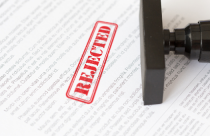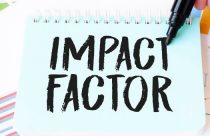Top 10 Journals to Publish Your Negative Results

Failure is the stepping stone to success. Most technological advancements have stemmed from initial failures. Even well-executed experiments with a clear hypothesis produce inconclusive or negative results. However, the research community has become quite accustomed to celebrating only positive findings. Daniele Fanelli, the study author, carried out an analysis of more than 4000 articles in multi-disciplinary journals. It showed that there is a strong inclination towards publishing positive results. This may imply that scientific objectivity is at risk. This may also cause scientists to come under publication pressure. Eventually, they may resort to unethical means such as falsifying, manipulating and fabricating the results.
Publishing negative results have high investment costs as compared to the potential outcomes. Investment costs may comprise money in the form of publishing fees, efforts in drafting the manuscript, and the time required to do so! The outcomes include the number of citations and the visibility of the publication. Another barrier that prevents researchers from publishing negative results is the commonly prevalent notion that negative study may imply a lack of rigor. It is a misconception that researchers reporting positive results are more competent and skilled. In fact, valuing negative findings could encourage researchers to delve into untapped research ventures.
Publishing negative results
The three key elements that define any research output are reproducibility, robustness, and translatability. Published reports serve as a trigger for investigators worldwide to build their hypotheses based on them. Therefore, both positive and negative results are essential to make the scientific process robust and credible. Reporting negative or null results helps researchers modify their research plans accordingly. Moreover, it prevents wastage of additional resources including time, money, and energy. Reporting negative studies also helps researchers to identify potential confounding factors such as sample size, treatment allocations, or reporting errors.
Why do Researchers Get Negative or Null Results?
There are three important reasons why researchers often get negative or null results.
- The original hypothesis was inaccurate and based on false and incorrect assumptions.
- Technical errors may include choosing a misfit study design, use of faulty reagents, or the use of inappropriate statistical methods.
- The researcher was unable to confirm the findings obtained from earlier published reports
Implications of not publishing negative results
Negative or null results that arise due to the first two reasons do not qualify for publication. Usually, when scientists identify errors in the generation of hypothesis or the use of faulty materials, they prematurely terminate the experiments. Thus, publishable negative results include the findings that fail to confirm previously published results. Moreover, the apprehension in publishing the results is when the findings are reported in ‘highly influential and high-impact’ journals. Publishing in high impact journals also allows other scientists to learn from them and end up repeating experiments that may potentially lead to failure. Subsequently, this will also prevent unnecessary wastage of funds and delay in scientific progress. The inherent bias for publishing only positive findings may also lead to accumulation of spurious data in the scientific literature
Criteria for Publishing Negative Results
When a researcher decides to publish negative results in a scientific journal, it must be done with complete caution! The data must be proved to be statistically negative using rigorous data analysis methods. The experimental protocols that yielded the results must be repeated multiple times to ensure there were no technical faults. Further, complete access to methodologies and raw data must be provided in the research report. Additionally, and most importantly, only those results that are likely to have a high impact should be published. Furthermore, the experiments can be performed in collaboration with colleagues, peers, and experts in the field. This helps in identifying confounding variables or any biases in the study design. If negative results are confirmed even after collaborative efforts, they provide greater confidence and stand a higher chance of being accepted in high impact journals.
New initiatives have been launched such as using registered reports for tackling negative study outcomes. They support the fact that scientific findings should be evaluated on the basis of study rigor and not by the outcomes. Researchers may submit the first half of their paper that describes the hypothesis, planned methods, and the proposed statistical power. If found suitable, the journal gives an ‘in-principle acceptance’ to the article. This implies, if the researcher sticks to the reported plan, the results shall be published regardless of the outcome. Subsequently, this safeguards the publication irrespective of positive or negative results.
Where Can Researchers Publish Negative Results?
There are several platforms that allow disclosure and dissemination of negative results. Researchers may post their findings on laboratory/university websites. There can be an open forum such as academic conferences that encourage honest discussions of unsuccessful experiments. Researchers may also consider uploading their findings to a free database such as ‘figshare’. However, publishing in peer-reviewed, widely accepted journals still remains the gold standard!
An article describing negative findings will be considered credible only when it is published in a reputed peer-reviewed journal. Publishing negative results can be an unsatisfying process. However, it is important that researchers do not fall prey to publishing in predatory journals.
Recently, there has been an optimistic change in trend with journals considering publication of negative results. Listed below are examples of distinguished journals that facilitate publishing such results:
- Positively Negative (PLOS One)
- The Missing Pieces: A Collection of Negative; Null and Inconclusive Results (PLOS One)
- The All Results Journals
- ACS Omega (ACS Publications)
- F1000Research
- PeerJ
- Journal of Negative Results in Biomedicine
- Journal of Negative Results – Ecology and Evolutionary Biology
- Journal of Articles in Support of the Null Hypothesis
- Journal of Pharmaceutical Negative results
Have you ever published negative results? Would you now find time to draft your negative results? Do you have any suggestions to make this process simple and credible? Do write to us in the comments below and let us know your thoughts on this.







![What is Academic Integrity and How to Uphold it [FREE CHECKLIST]](https://www.enago.com/academy/wp-content/uploads/2024/05/FeatureImages-73.png)


If we consider the natural selection principle, this publication is supporting the future generations of the no-fit. Publishing significant findings is the only way to select the researchers who know what they are doing from the ones that have no purpose. The key point is the reviewers’ rigor and accuracy process to approve the articles to be published.
Imagine how many experiments have been run time and time again because no one published their negative results.
Though it might take extra time and resources to publish, that wealth of knowledge of what doesn’t work should save a much larger amount of time and resorce by avoiding unessasary duplication.
I would be interested to see what science would look like if the decision to publish was always made before the results are analysed, with time and resources planned in regardless of the outcome.